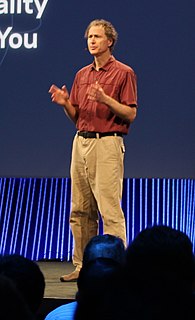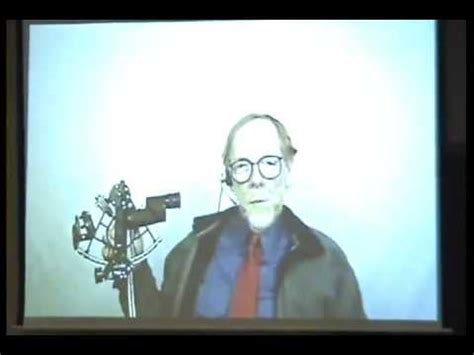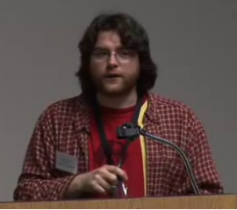Top 80 Quotes & Sayings by Erik Naggum
Explore popular quotes and sayings by a Norwegian programmer Erik Naggum.
Last updated on December 25, 2024.
Historically, labor unions arose when people had gotten a taste of a different lifestyle and were willing to pay a lot more for their basic livelihood and had gotten into a fix they couldn't get out of - because they had accepted the unacceptable to begin with. Accepting something you have to form a labor union to fight after the fact only tells me that people were acting against their own best (or even good) interests for a long time. I don't see any rational, coherent explanation for this sort of behavior in humans, but it's all over the place.
You become a serious programmer by going through a stage where you are fully aware of the degree to which you know the specification, meaning both the explicit and the tacit specification of your language and of your problem. "Hey, it works most of the time" is the very antithesis of a serious programmer, and certain languages can only support code like that.
I believe C++ instills fear in programmers, fear that the interaction of some details causes unpredictable results. Its unmanageable complexity has spawned more fear-preventing tools than any other language, but the solution should have been to create and use a language that does not overload the whole goddamn human brain with irrelevant details.
If car manufacturers made cars according to spec the same way software vendors make software according to spec, all five wheels would be of widely differing sizes, it would take one person to steer and another to work the pedals and yet another to operate the user-friendly menu-driven dashboard, and if it would not drive straight ahead without a lot of effort, civil engineers would respond by building spiraling roads around each city.
They don't make poles long enough for me want to touch Microsoft products, and I don't want any mass-marketed game-playing device or Windows appliance near my desk or on my network. This is my workbench, dammit, it's not a pretty box to impress people with graphics and sounds. When I work at this system up to 12 hours a day, I'm profoundly uninterested in what user interface a novice user would prefer.
People search for the meaning of life, but this is the easy question: we are born into a world that presents us with many millenia of collected knowledge and information, and all our predecessors ask of us is that we not waste our brief life ignoring the past only to rediscover or reinvent its lessons badly.
I have come to believe that large print, thick and heavy paper, and wide margins and oversize leading is indicative of the expected intelligence of the reader. … Compare children's books and books on Web Duhsign or other X-in-21-days books. If the reading level of a specification is below college level, chances are the people behind it are morons and the result morose.
Short of coming to their senses and abolishing the whole thing, we might expect that the rules for daylight saving time will remain the same for some time to come, but there is no guarantee. (We can only be glad there is no daylight loan time, or we would face decades of too much daylight, only to be faced with a few years of total darkness to make up for it.
When all actions are used for feedback, the consequence of making mistakes will be a corrective and appropriate response, because everything everybody does matters. ... The more selective you are in the feedback you accept, the more insane your reasoning will become as you will necessarily reject corrective feedback that would have led to better reasoning.
The Internet will not become a money machine until the banking industry figures out how to transfer money for free so you can charge USD 0.005 (half a cent) for some simple service like, say, reading a newspaper article you have searched for. With today's payment system, the cost of the transfer of the funds completely dwarf the cost of the service paid for. ... This situation, however, is what acutely prevents the Internet from taking off as a network for paid services.




















